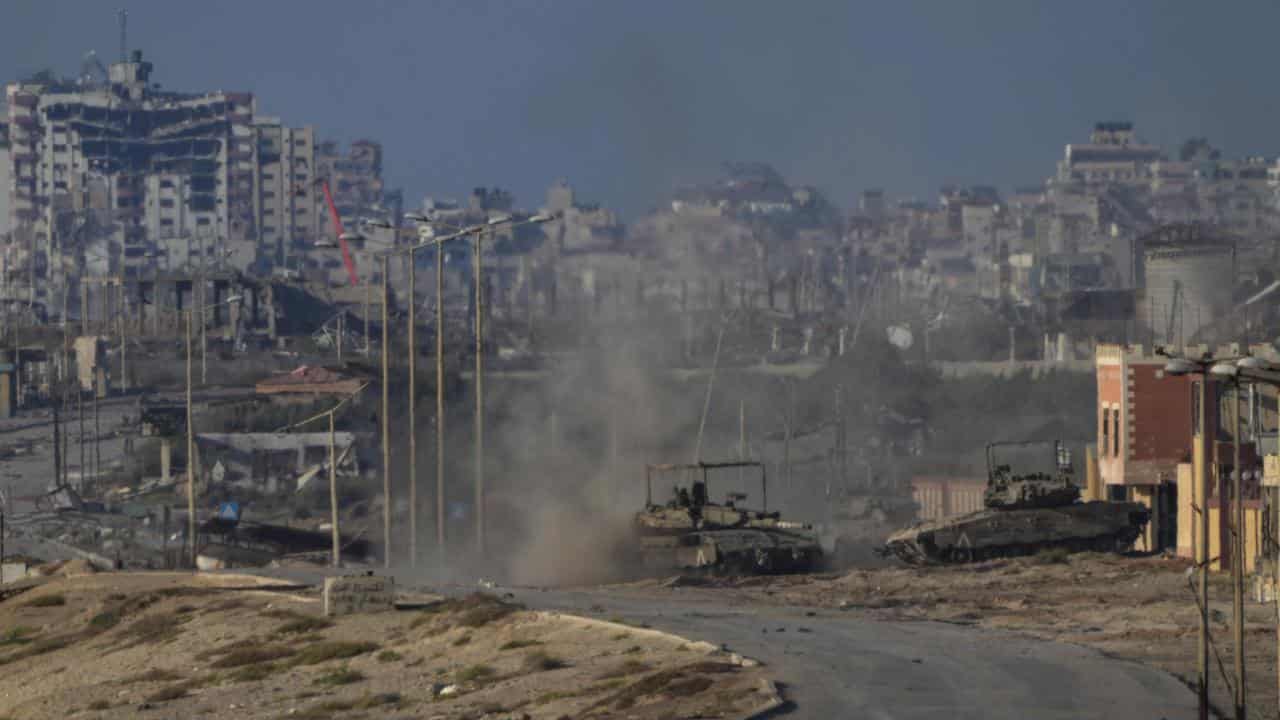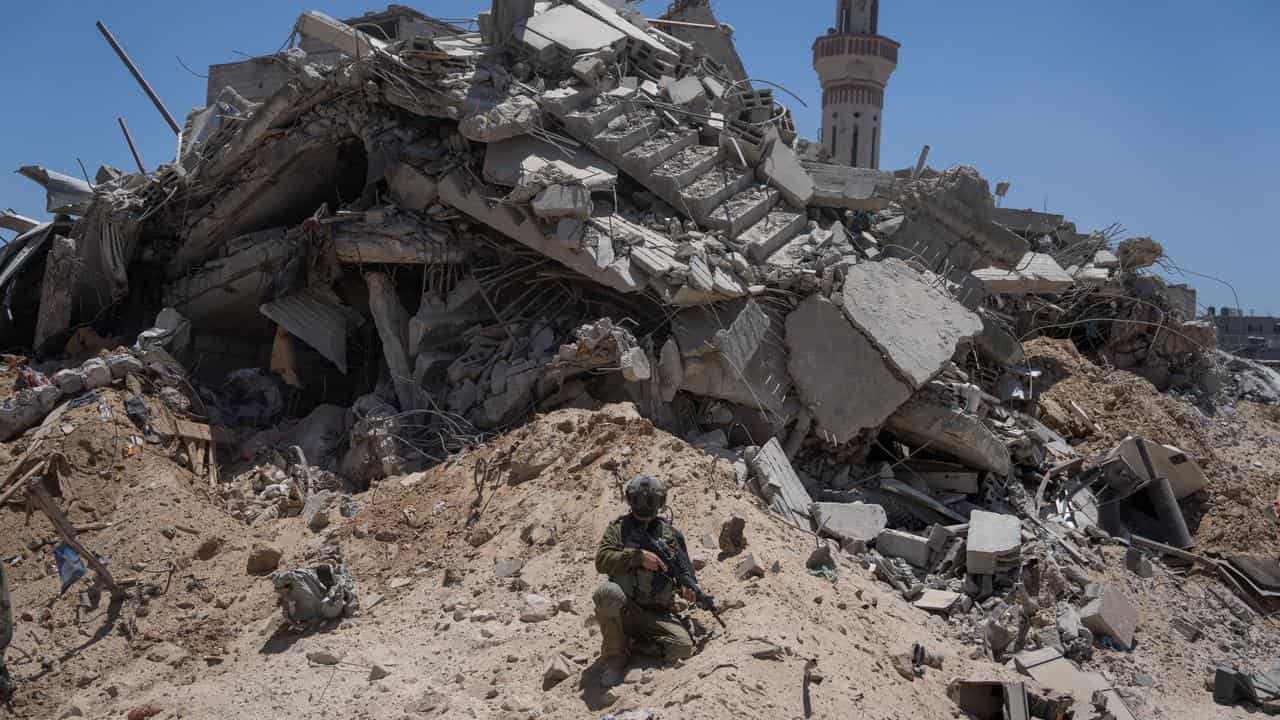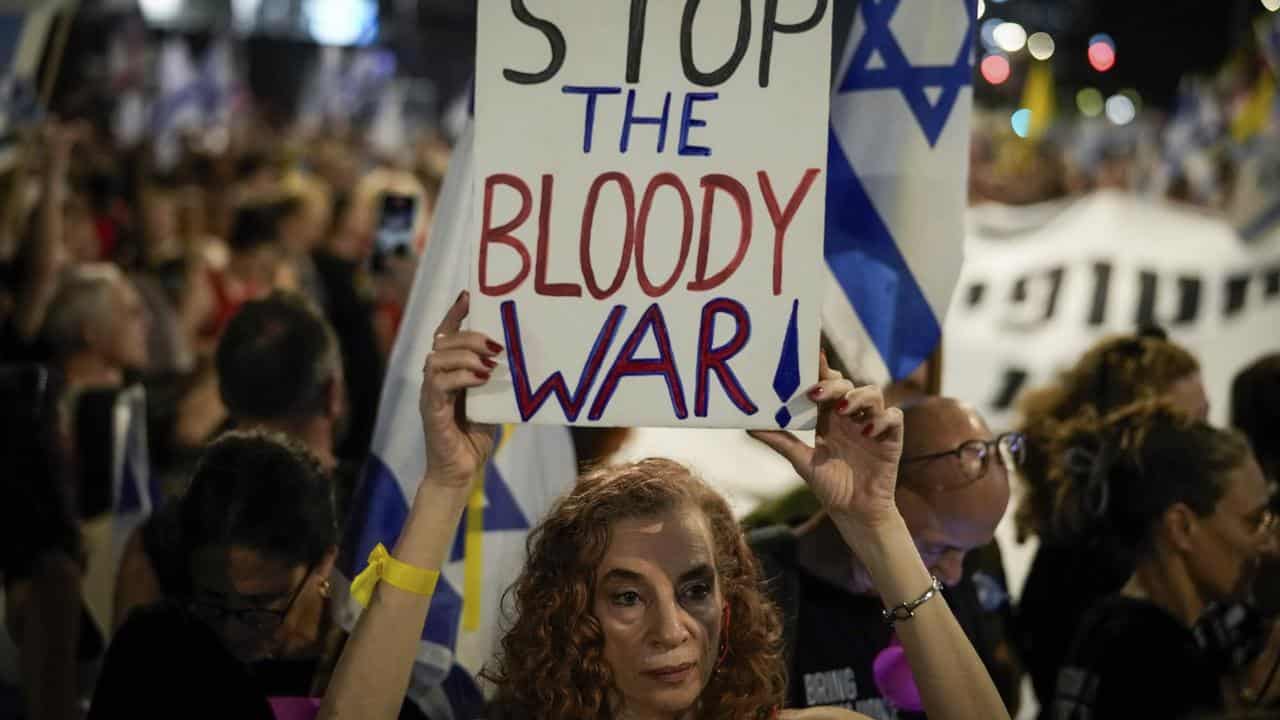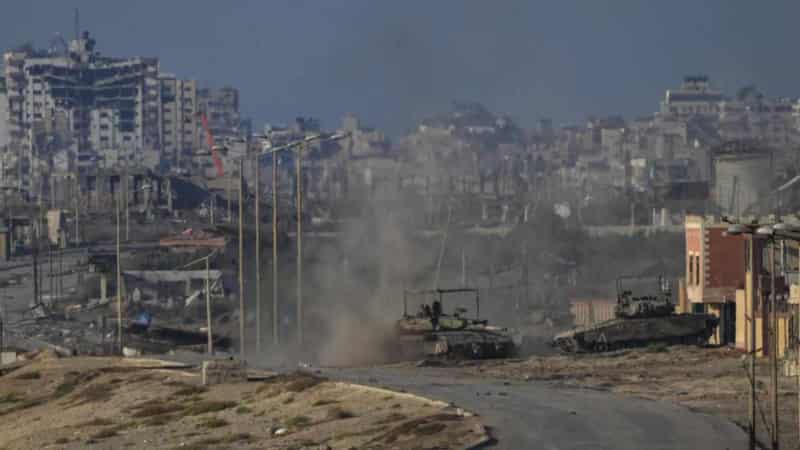
Israeli forces have pounded Gaza City and columns of tanks have advanced into the heart of the area from different directions in what residents said was one of the heaviest attacks since October 7.
The Gaza Civil Emergency Service said it believed dozens of people were killed but emergency teams were unable to reach them because of ongoing offensives in Daraj and Tuffah in the east and Tel Al-Hawa, Sabra, and Rimal further west.
Israeli tanks had so far been stationed in some areas of Tel Al-Hawa and Sabra but hadn't advanced deep into the three other districts, which residents said had been bombed throughout the night into the early morning hours on Monday.

Several multi-floor buildings have been destroyed, they added.
One of the Israeli tank thrusts, residents said, was from an eastern direction, pushing people towards the western road near the Mediterranean.
"The enemy is behind us and the sea is in front of us, where we will we go?" said Abdel-Ghani, one Gaza City resident, who did not give his full name.
"Tank shells and missiles from the planes are falling on the roads and houses like hell from a volcano. People are running in all directions and no one knows where to go," Abdel-Ghani told Reuters via a chat app.
The Israeli military said in a statement it had been mounting an operation against militant infrastructure in the Gaza Strip, and it had taken out of action more than 30 fighters who posed a threat to Israeli troops.
The new Israeli offensive comes as Egypt, Qatar and the United States stepped up efforts to mediate a ceasefire agreement between Israel and the Palestinian militant group Hamas as the Gaza war entered its tenth month.
Gaza residents said tanks advanced from at least three directions and reached the heart of Gaza City, backed by heavy Israeli fire from the air and ground.
That forced thousands of people out of their homes to look for safer shelter, which for many was impossible to find, and some slept on the roadside.
Medics at the Al-Ahli Arab Baptist Hospital in Gaza City had to evacuate patients to the already crowded and under-equipped Indonesian Hospital in the northern Gaza Strip, Palestinian health officials said.

The war was triggered on October 7 when fighters led by Hamas, which controlled Gaza, attacked southern Israel, killing 1200 people and taking around 250 hostages, according to Israeli figures.
More than 38,000 Palestinians have been killed in Israel's military offensive, according to Gaza health officials.
Hopes among Gaza residents of a pause in the fighting had revived after Hamas accepted a key part of a US ceasefire proposal, prompting an official in the Israeli negotiating team to say there was a real chance of a deal.
Hamas has dropped a demand that Israel first commit to a permanent ceasefire before it would sign an agreement.
Instead, the militant group said it would allow negotiations to achieve that throughout the six-week first phase, a Hamas source told Reuters on Saturday.
But Israeli Prime Minister Benjamin Netanyahu insisted the deal must not prevent Israel from resuming fighting until its war objectives are met.
Those goals were defined at the start of the war as dismantling Hamas' military and governing capabilities, as well as returning Israeli hostages.
US Central Intelligence Agency Director William Burns is to meet with the Qatari prime minister and the Israeli and Egyptian intelligence chiefs on Wednesday in Doha, said a source familiar with the issue who asked not to be further identified.









